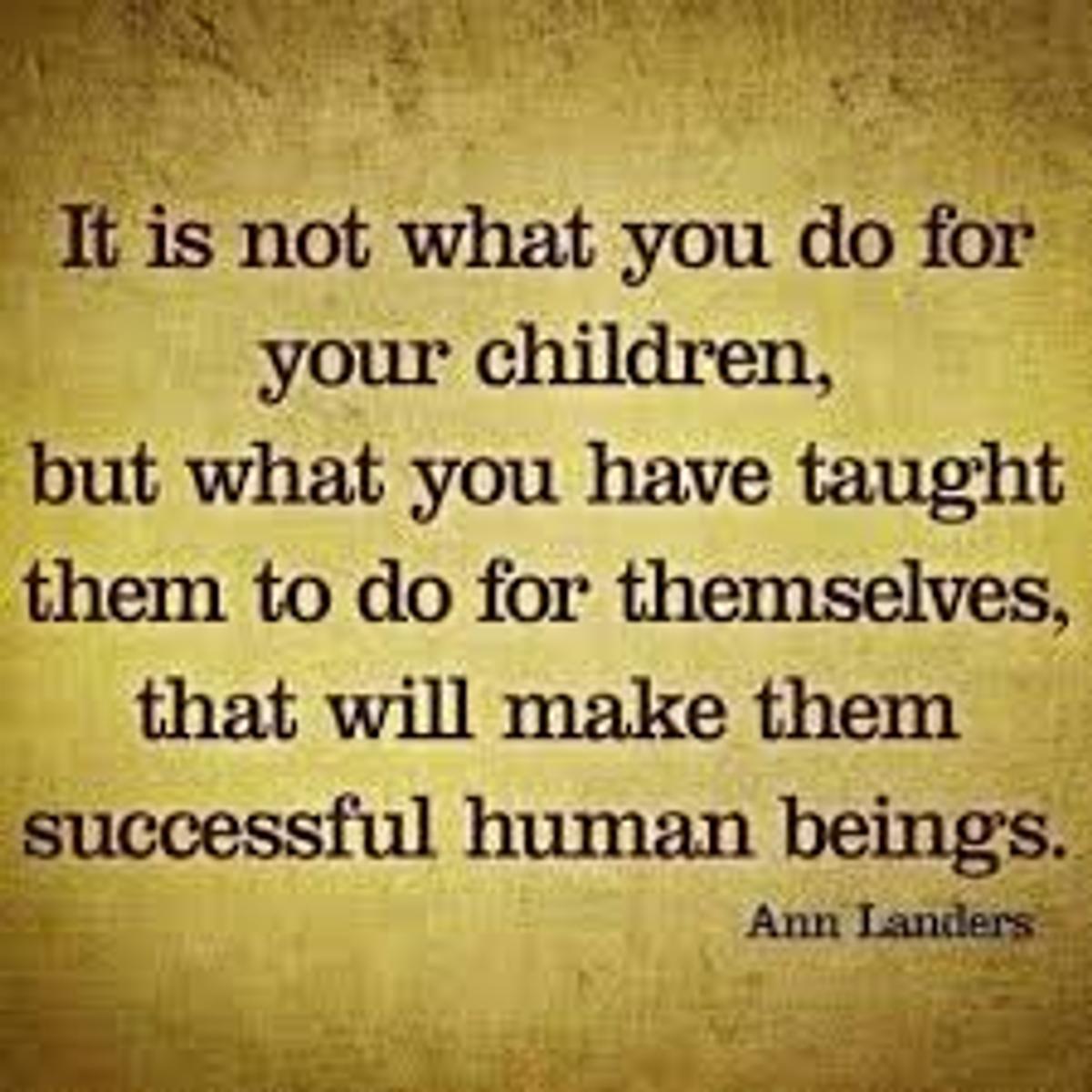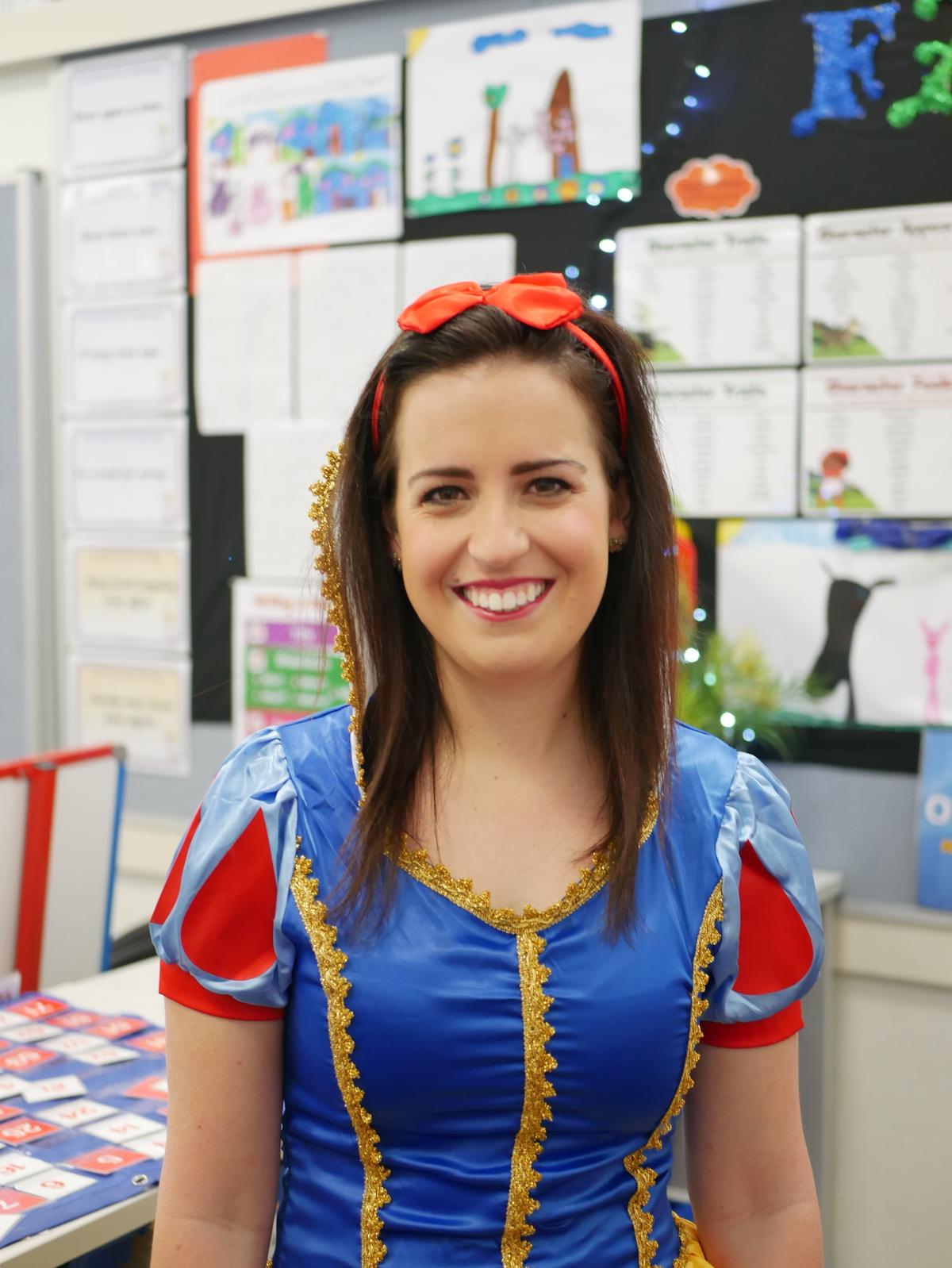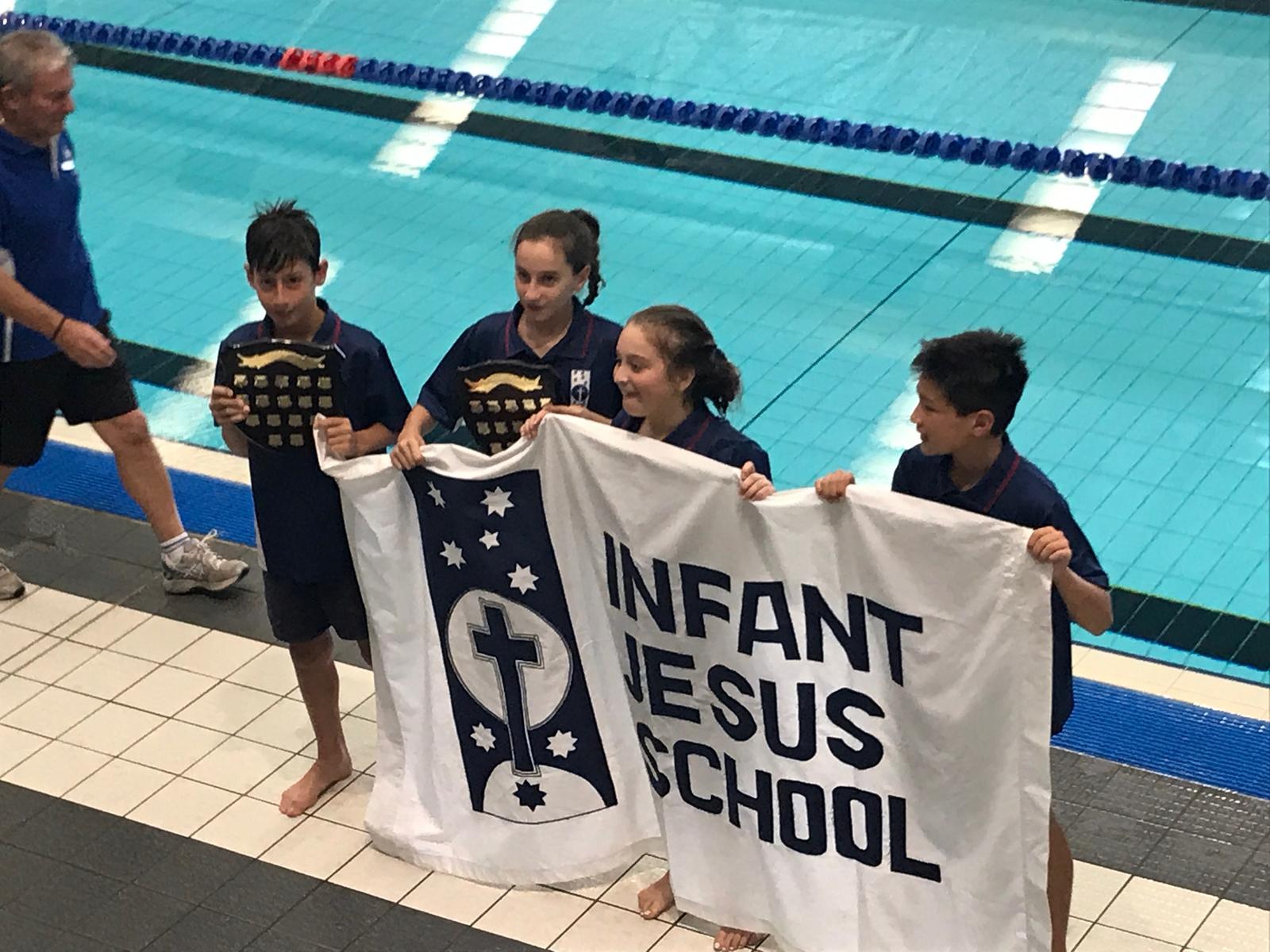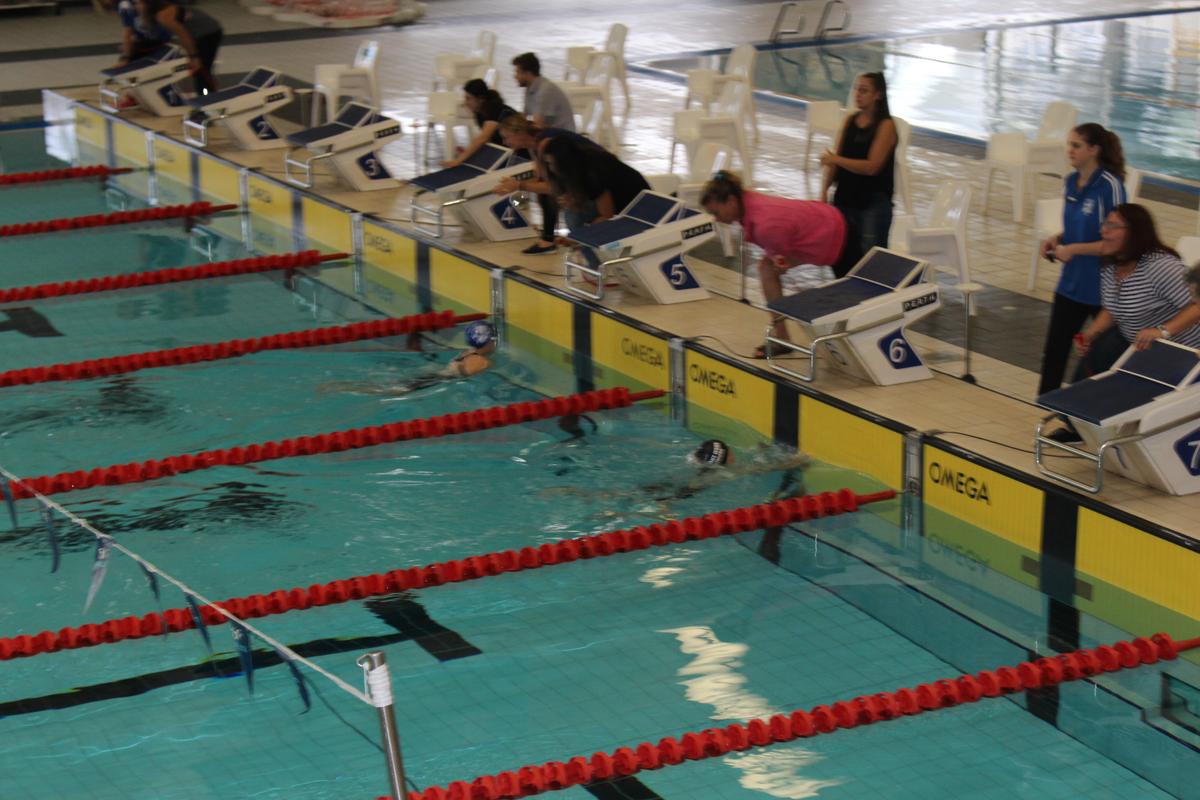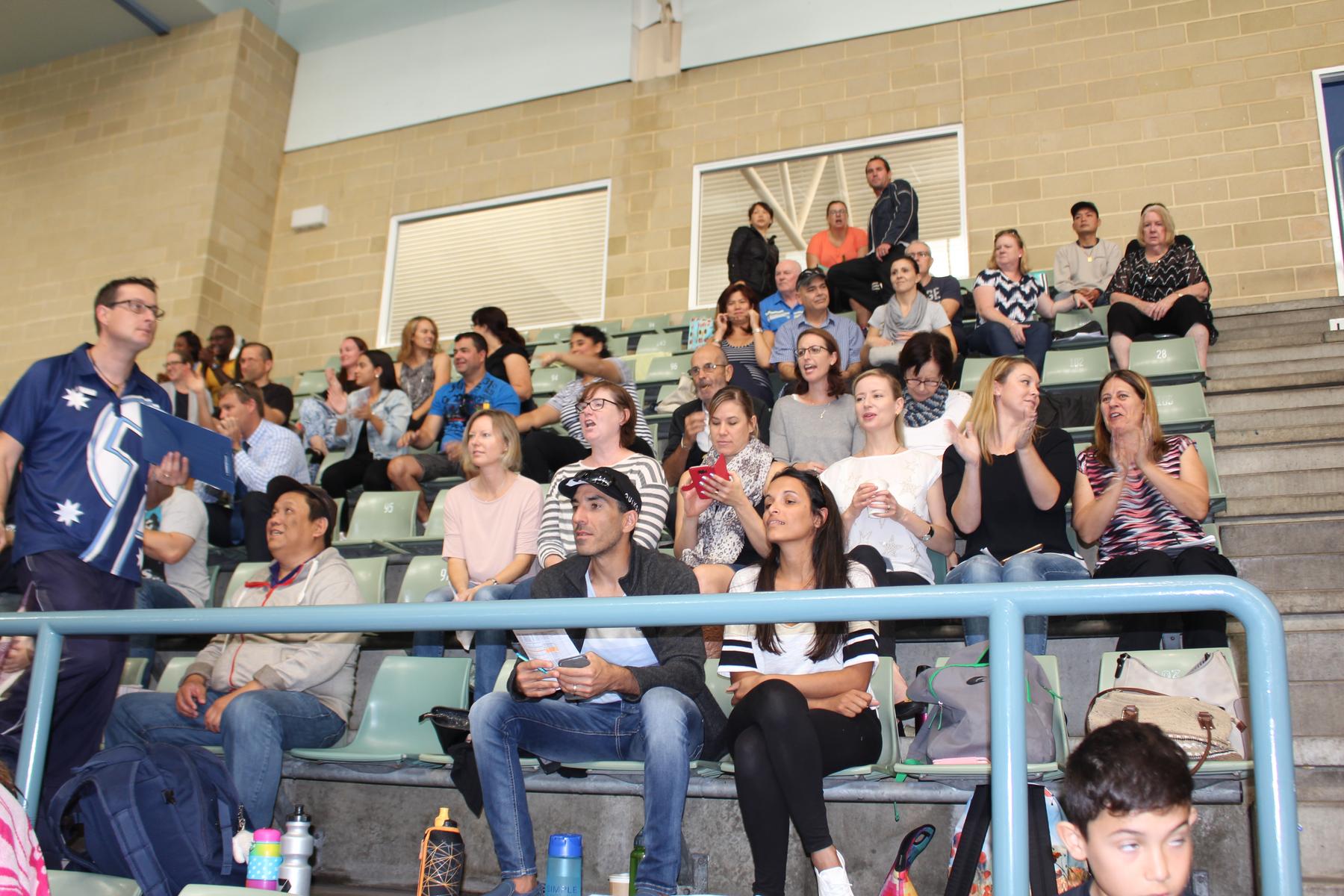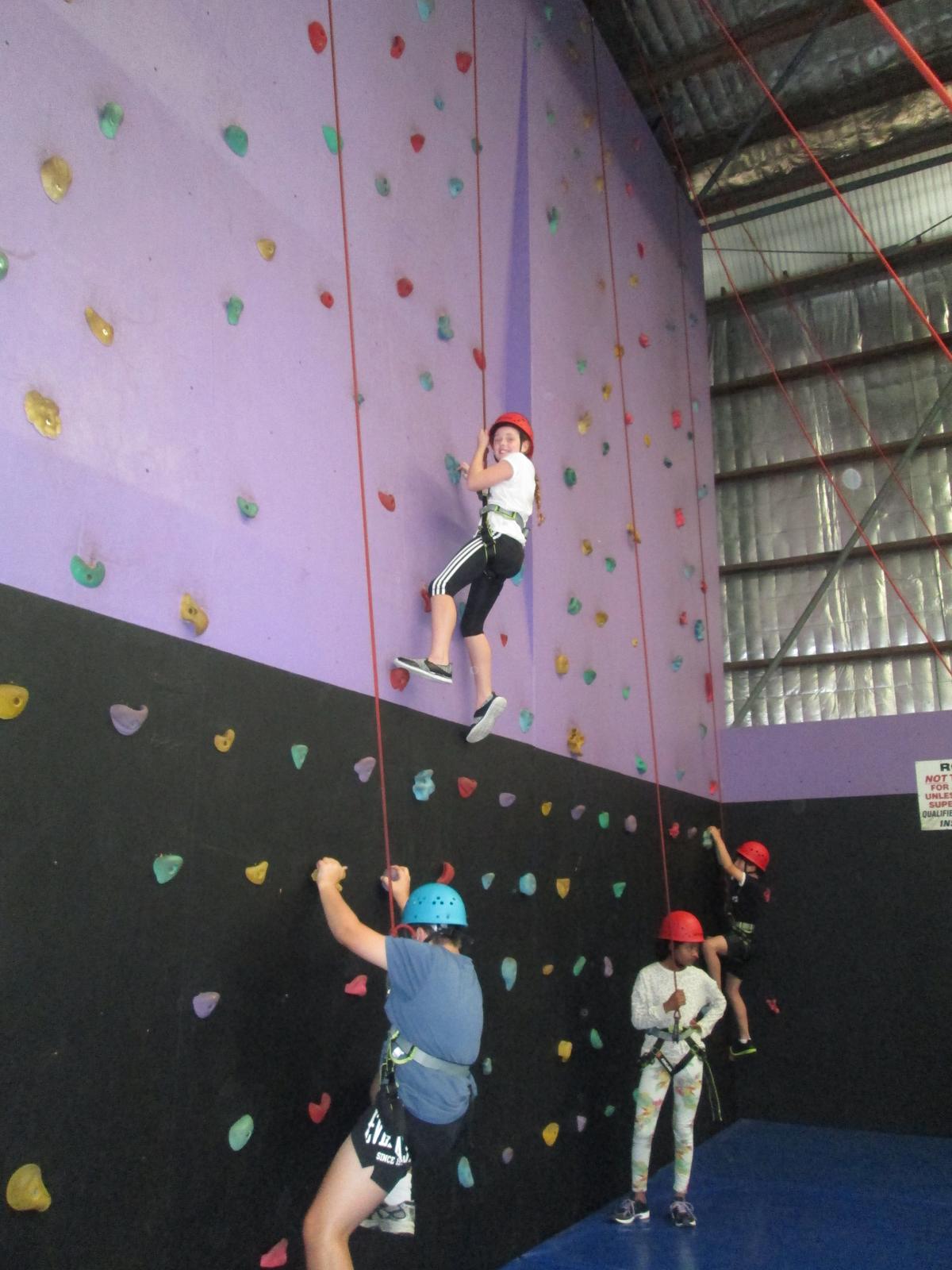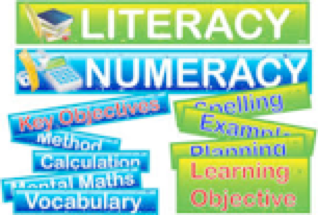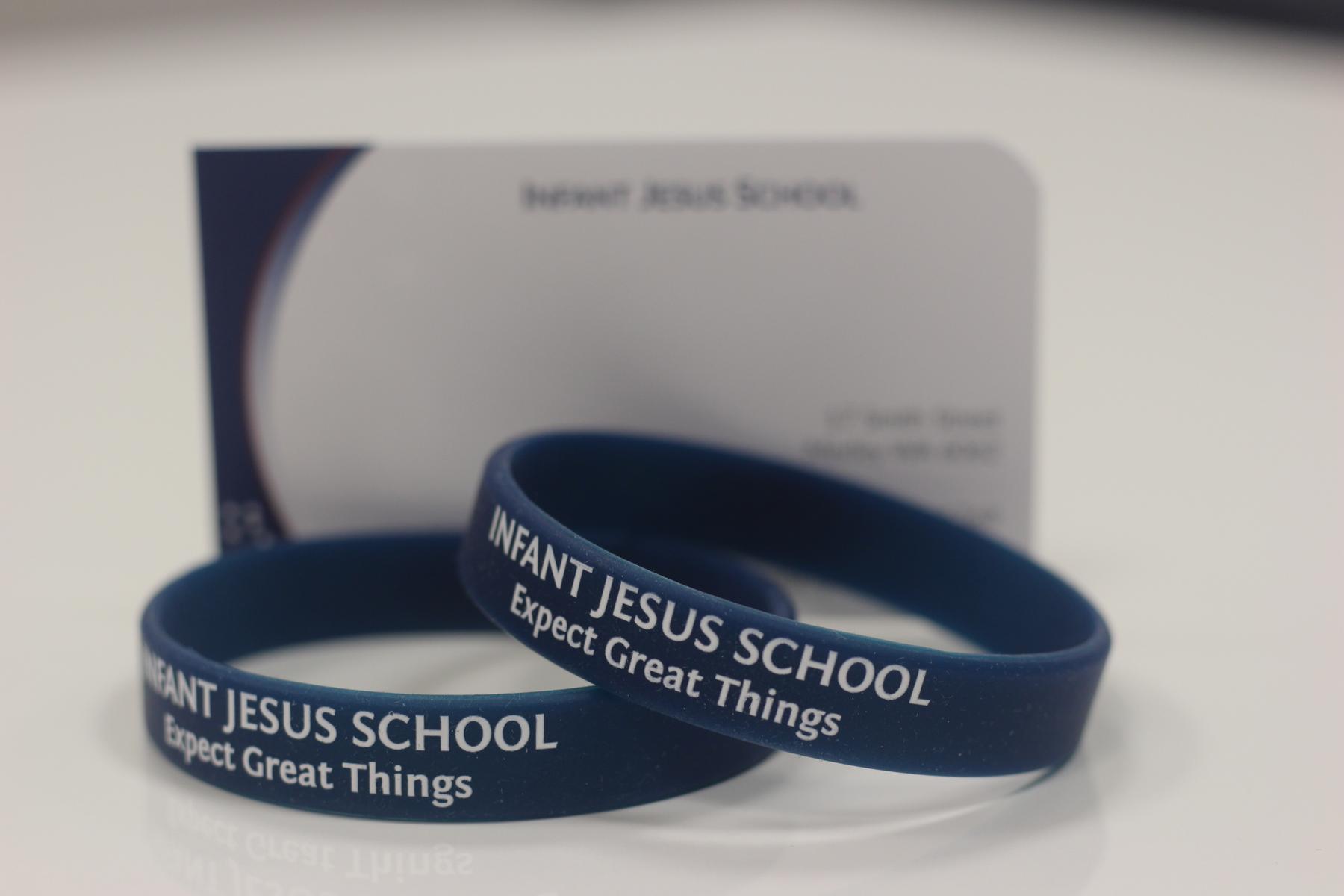Principal's Report
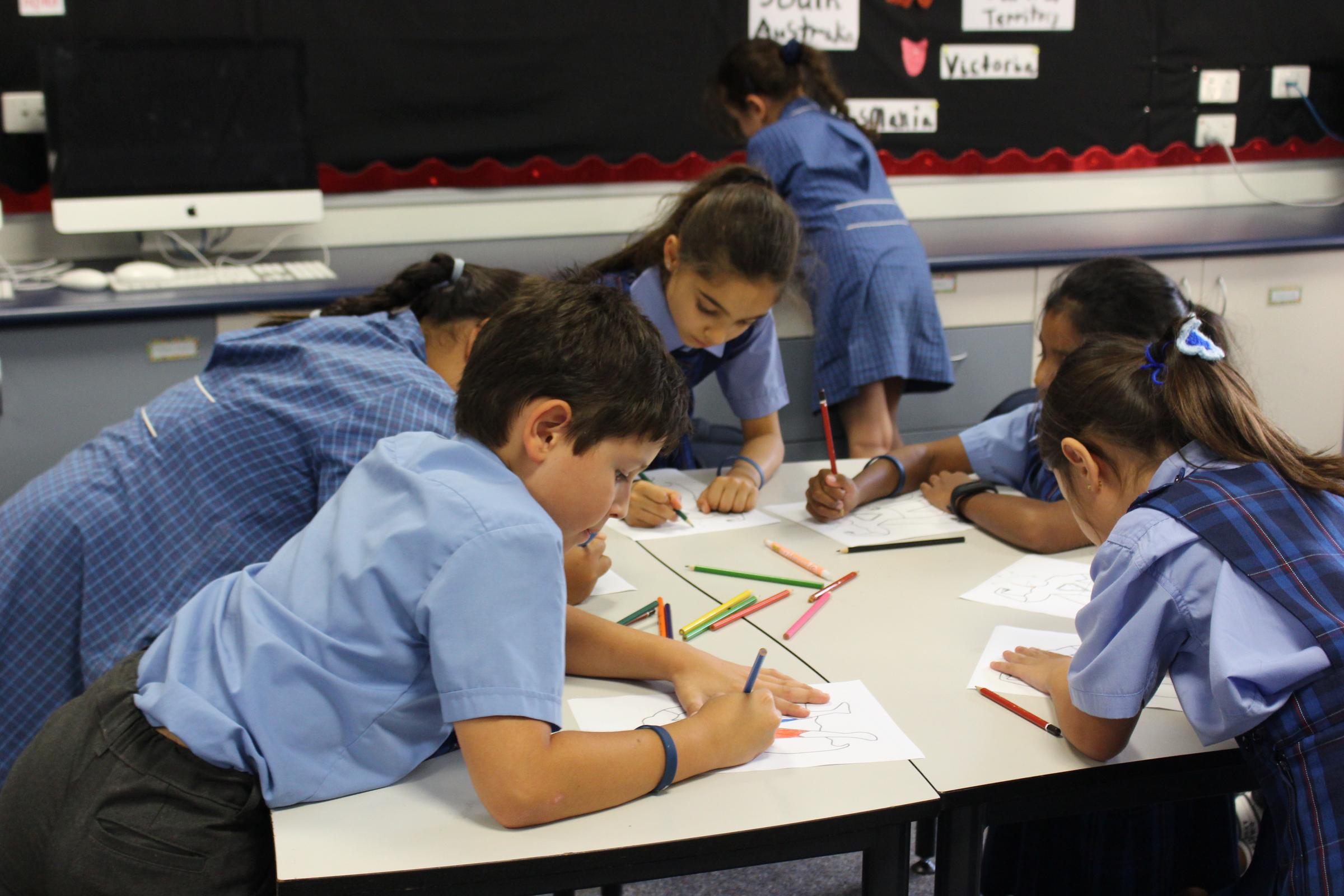
Parents as Role Models
Dear Parents,
Recently, I came across an article that I thought was pertinent to all of us as parents. The article spoke about how aware we must be as parents of our importance to be models in the lives of our children, and how they will eventually live out their lives reflecting the values they absorbed during the time they live with us. In essence the article spoke about three things, put forward as the “3L’s”.
Love
Children today need a lot of love; often they put on a brave front and appear so self-confident. However, they need tons of love that must be sincere and honest. Children need to know that God’s love is real and they should be able to see it in our lives, the more Christian we are the more loving they will be.
Listen
Children say all the time, “No one listens to me!” Many times, they are trying to tell us so many things, but we are too busy and too tired to listen. As they say, we were given two ears and only one mouth – perhaps there is a message in this!
Laugh
It is important that we try and spread happiness in our homes and to all we meet. Just as Christ taught us to think of others, we too should try and think of others more often and be less selfish in our deeds. We have so many reasons to be happy and each one of us has been blessed in so many ways. If we were to sit down and think about all the nice things in our lives, I am sure we would be surprised.
Our children are with us only for a short time. Unfortunately, they grow up so very quickly. Before long they will set out on the journey of their own life. The question for us is how good a role model were we to them in the short time we have them. Have we taught them about the love of God and to love others? Have we shown them how to listen and have we tried to spread happiness in our homes and with all we meet?
Mother's Day
“ I’d like to be an ideal mother, but I’m too busy raising my children.”
(author unknown)
Even though this might be the situation for you, make sure that on Mothers’ Day you are not too busy to take time to rejoice in yourself because:
“Happy Mother’s Day means more than having a happy day. Within these words lie lots of things we never get to say. It means, I love you, first of all, and then thanks for all you do. It means you mean a lot to me and that I honour you.”
For many years now, psychologists have been saying that the bonding of a baby with its mother in the first few minutes of life is vital for the stability of the new-born child. The mother-infant bond is an intense relationship of unparalleled human affection. It is the foundation of the child’s emotional and physical survival. No wonder the saying:
“Mothers hold their children’s hands for a short time but their hearts forever”, rings true for each of us.
It is important that we do take the time next weekend to think of our MUMS. Mothers’ Day presents us with an opportunity to reflect on the many things that our mothers do for us, and continue to do for us each and every day. Thank you to all Mothers for the wonderful gifts that you are and we hope you have a beautiful day.
Due to the Year 6 Camp, Infant Jesus School will celebrate the occasion a few days early with a special Mass and a morning tea dedicated to our mums on Tuesday 9 May. This mass will take place in the School Hall followed by the morning tea.
Thank you to all Mothers for the wonderful ‘gifts’ you are and we hope you have a beautiful day.
Praying The Rosary - Month of May
The month of May has traditionally been a time when we pray to Mary. The Rosary is often prayed during this time. The Rosary tells of some of the very important events in Mary’s life. Mary’s life begins joyfully, then experiences sorrow and is finally glorious.
Joyful Mysteries
At the joyful time in her life an angel, Gabriel, announces to Mary that she is to be the mother of Jesus. Mary then shares this news with her cousin Elizabeth. Jesus is born and then, as a baby, He is presented in the temple. Later, as a twelve-year-old, Jesus shares a special message with the teachers at the temple.
Sorrowful Mysteries
During the sorrowful part of her life, Mary watched as Jesus prayed in the garden before the soldiers came to take Him away. She was there when He was crowned with thorns and led off to die. She saw Jesus die on the cross.
Glorious Mysteries
The last part of Mary’s life can be seen as a glorious time. To begin, Jesus rose from the dead and went to heaven. Jesus then came back to see and talk with His friends. Finally, Mary goes to heaven to become the mother for all of Jesus’ friends. She is then crowned Queen of heaven and earth.
Mysteries of Light
In October 2002, Pope John Paul II added the Mysteries of Light to the Holy Rosary, calling us to pray the rosary daily; for our families – and for world peace. This Mystery reflects on some of the important moments in Christ’s life
Prayer
Hail Mary, Full of Grace
The Lord is with You
Blessed are You among women
and blessed is the fruit of your womb, Jesus.
Holy Mary, Mother of God
Pray for us Sinners
Now and at the hour of our death
Amen
From My Readings
The language of Independence-building
Independence-building is vitally important for parents. It’s the pathway to children’s competency, confidence and creativity, and the short cut to resilience and real learning. Families always develop shared language around the values that have strong meaning for them. If resilience is a shared value then there invariably will be a strong set of words and phrases about resilience factors such coping, flexibility and perseverance.
Similarly, the values of independence and self-sufficiency are reflected in a family’s proprietary language. In fact, it’s through shared language that culture exists. If you are looking to building a culture of independence in your family then creating your proprietary language around independence is a great way to start.
These following twelve examples of independence-building language, and the principles behind them, will help you create your own family’s language.
1. “Never regularly do for a child the things a child can do for him or herself”
Goal: Independence
This is perhaps the original parenting-for-independence manifesto, and it’s a philosophy that guides many teachers and parents today. In effect, this sentence means that wherever possible - we give children the skills and competencies to look after themselves physically and emotionally. It requires a great deal of patience, time and courage from parents and teachers as the sentence is easier to say than to put into practice. But it’s a worthy guiding principle that leads to self-sufficiency in children, and ultimately redundancy as parents.
2. “Is this something you can do?”
Goal: Self-help
Independence takes many forms but perhaps the most common is the development of self-help skills. The confidence, pride and, for most, sheer pleasure that kids doing the simple things for themselves such a toddler tying his shoelaces or a child making her own lunch is immeasurable. Yet it is so easily denied by well-meaning parents and adults who see it as their job to do everything for children. Independence begins at home with the development of self-help skills.
3. “Have you checked the help roster today?”
Goal: Contribution
A great way to develop a sense of independence is to give kids opportunities to help out at home. There is no need to overburden children with jobs, but a sensible allocation of chores according to their age and study requirements is not only a great help to you, but fantastic training for them. It also builds accountability and a work ethic, both highly valued characteristics for continuing success at school and later in life.
4. “Which of these two would you prefer?”
Goal: Decision-making
Parents as wise leaders need to call the shots on how the family life is conducted, including health and welfare issues such as appropriate bed and bath times. Some things are not up for negotiation. But there are areas where parents can rightfully hand autonomy to children and say, ‘It’s your call!’ Choice of clothes, how they keep their bedroom, what they eat and who they play with are the types of decisions they can make. Naturally, this is age-related and you do need to have some influence on their choices.
5. “How can you make this happen?”
Goal: Problem-solving
Kids get used to bringing their problems to parents to solve. If you keep solving them, they’ll keep bringing them. A problem-solving approach relies on asking good questions, which can be challenging if you are used to solving your child’s problems. The first question when a child brings you a problem should be: ‘Can you handle this on your own?’ Next should be, ‘What do you want me to do to help you solve the problem?’ These questions are not meant to deter children from coming to you; rather, to encourage and teach them to start working through their own concerns themselves.
6. “We rely on you to do this.”
Goal: Reliability
Reliability is closely connected to responsibility and other aspects of independence. Every child over the age of five should do something that someone else relies on whether it’s looking after a pet, clearing the meal table or emptying the garbage on a regular basis. Having others rely on you has its challenges and can be a learning curve. They’ll inevitably forget to put the rubbish bins out on garbage night, meaning your bin will be overflowing for the next week. They’ll need to be reminded about feeding the pet or clearing the table. Kids inevitably won’t get things right, but that doesn’t mean we should stop giving them responsibilities.
7. “What can you learn for next time?”
Goal: Self-sufficiency
Learning from mistakes is part of the independence-building process for children. Often adult impatience or unwillingness to put up with errors prevents us from giving kids the chance to do things for themselves or take real responsibilities. If independence is to be a major part of your family’s culture then it’s imperative that we help kids learn from their mistakes whether social, behavioural or just messing up while helping out at home.
8. “How do you feel about this?”
Goal: Emotional intelligence
An often over-looked aspect of independence is the ability to self-manage your emotional state. Emotional self-management starts with the recognition of how you feel about a particular event or action and then labelling that feeling. If possible prompt to identify their emotions before they act on them. You can also revisit events and ask children about the feelings that may have led to a certain behaviour such as hurting or yelling at a sibling.
9. “When you muck up, you make up.”
Goal: Accountability
Kids of all ages will make mistakes. In fact, mucking up is part of the learning process. But kids will just repeat their mistakes unless they experience the consequences of their decisions. The use of behavioural consequences is a way of teaching children to take greater responsibility for their lives and to learn to make smarter choices.
10. “How will you fix this?”
Goal: Restoring relationships
Independent kids are usually socially-smart kids who don’t operate in a bubble. They know that their behaviour impacts on others they are mindful of the thoughts, feelings and behaviours of others. They also make amends or restore relationships when their behaviour impacts negatively on others. Relationship restoration is a lifelong skill and involves the following: swallowing your pride, making up, giving something back, not holding a grudge and moving on.
11. “You need to do what’s right, not what’s easy.”
Goal: Integrity
A sense of integrity is important for a child’s independence because it’s the basis of reasoned and socially focused self-control and self-management. The job of parents is to move their children from ‘Me’ to ‘We’. Integrity is the great socialising agent for a child. They may get by without courage, endurance and grit but they won’t get far socially without integrity.
12. “Let’s find a way to make this happen.”
Goal: Positive risk-taking
One of the ways to develop independence is to work with them to build their skills and abilities to safely navigate an ever-broadening environment outside of the relative safe confines of their home. Ideas include adults and kids doing things together such as catching public transport until they are ready to go it alone or with friends; and giving kids smaller freedoms that lead to bigger liberties such as allowing a young child to walk part of the way to school on their own and then extending the distance as they get more experience and feel more confident.
Independence-building is vitally important for parents. It’s the pathway to children’s competency, confidence and creativity, and the short cut to resilience and real learning. We’ve gradually retreated from this approach over recent generations much to our children’s detriment. It’s time to help kids reclaim their independence. Getting our language right is a good place to start as family change always begins with shared language.
– By Michael Grose
Best Wishes
As many parents would be aware, tomorrow is Mrs Stephanie Archer's last day at Infant Jesus School as she takes parental leave commencing next week. Mrs Archer and her husband Nathan are expecting their first child in June this year.
Stephanie has been part of the Infant Jesus community since 2012, teaching in Kindergarten, Pre-Primary and now Year 1. Stephanie has always put her heart and soul into her teaching and we are sure that she will make a wonderful Mum.
We wish her and Nathan all the very best for the as they embark on this new chapter in their life.
Interschool Swimming
On behalf of our Interschool Swimming squad I am very happy to announce that we return having WON the Overall Points Shield at today’s Carnival. I would like to congratulate all of the swimmers who represented Infant Jesus with pride and brought home the shield for the first time in a very long time!
Today’s carnival could not have happened without the parent volunteers who gave up their time for our children. I would also like to thank all of the parents who came to support and our teachers for coordinating the children and scoring. Special mention must be made to the children who raced their hearts out today and who were so successful in their races.
Below are the scores for the three shields, which shows that we also won the Boys Aggregate Shield. Well done to all Swimmers and we look forward to competing in A Division next year.
Girls Aggregate
1st Mary MacKillop - 650
2nd OLA - 630
3rd St Brigid's - 614
4th St Kieran's - 588
5th Infant Jesus - 578
6th Good Shepherd - 424
7th St Helena - 140
Boys Aggregate
1st Infant Jesus - 690
2nd Good Shepherd - 634
3rd OLA - 566
4th St Kieran's - 540
5th Mary MacKillop - 510
6th St Brigid's - 468
7th St Helena - 248
Overall Winners
1st Infant Jesus - 1268
2nd OLA - 1196
3rd Mary MacKillop - 1160
4th St Kieren's - 1128
5th St Brigid's - 1082
6th Good Shepherd - 1058
7th St Helena - 388
Well done to all our the competitors and Mr Sheridan. Many thanks to Mr Colangelo, Miss Allegretto and Mrs Houwen for their help and assistance on the day.
#ExpectGreatThings
Year 6 Camp
It is an exciting time for our Year 6 students as they prepare themselves for their school camp. The students and staff will be setting off early next Wednesday morning to Forest Edge Bush Camp in Waroona.
The purpose of this camp is fundamentally about developing the leaders of the school. The school camp builds confidence, resilience and responsibility, turning students into empowered, inspiring leaders.
All children learn from the unique experience of community living; sharing, working and living as a team. Being inter-dependant with peers affords the child an opportunity to make new friends, to view each other out of the context of school, and to witness and appreciate the different talents of others. School camps expose children to different environments that they would not normally experience in daily suburban living. Out of this they build personal competencies such as self-identity, self-worth, self-esteem, leadership and self-respect.
Camps help develop self-esteem as children learn to try different activities in a supportive and friendly environment. Professionally trained, outdoor Instructors help children feel secure and capable. This will help children grow by providing a supervised, positive environment that has safety as a primary commitment.
Students participate in activities they have never experienced before and are rewarded with a sense of accomplishment and self-worth. Camp is therefore a wonderful experience for all children as they learn new skills, and develop a sense of autonomy and trust in their decisions.
The aims of the camp are:
- to develop within the students their leadership skills.
- to build and develop new friendships.
- to build personal competencies such as self-identify, self-worth, self-esteem and self-respect
- to participate in activities that perhaps students have never experienced before
- to develop new skills and develop a sense of autonomy and trust in their decisions
Staff members attending the camp:
- Mr Frank Colangelo Mrs Clare Moffat
- Mrs Janelle White Miss Stephanie Duffy
- Mr Michael Sheridan Mrs Cheryl Macpherson
- Mr Paul Hille
We wish all the students and the teachers all the best for the three days. We hope that they have a great time and participate in some wonderful and memorable experiences.
NAPLAN Testing
As parents are aware, the national tests in literacy and numeracy will be conducted next week. The National Assessment Program - Literacy and Numeracy (NAPLAN) will involve students at this school in Year 3 and 5. However, children in Year 7 and 9 are also assessed. These NAPLAN assessments are conducted in all states and territories in Australia at the same time. The results from NAPLAN will provide an important measure of how Australian students are performing in the content strands of numeracy, reading, writing, spelling, grammar, and punctuation.
A major purpose of the assessment is to provide parents with information about the progress of their children in relation to nationally agreed benchmarks. Benchmarks represent the minimum expected standard of achievement in literacy and numeracy. Parents will receive a report on their child’s performance later in the year.
However, it must be realised this assessment cannot replace the richer judgements made about your child by the classroom teacher throughout the school year and should be viewed in this light. We wish all students the best of luck.
The timetable is as follows:
Tuesday 9 May
- Writing
- Language Conventions
Wednesday 10 May
- Reading
Thursday 11 May
- Numeracy
STEAM Parent Nights
This term, our school will be holding two STEAM (Science, Technology, Engineering, Art, Math) nights. The purpose of these nights will be to share with parents what STEAM is, how it fits into the curriculum and how our school is implementing it across the year levels.
There will also be an opportunity for parents to participate in mini STEAM activities based around what students have been learning in class.
The first STEAM Parent Night will be held on Thursday 18 May is for parents of children in Years 4, 5 and 6.
The second STEAM Parent Night will be held on Thursday 25 May for parents of students in Years 1-3.
As places are limited, please register your interest as early as possible by following the link.
https://www.surveymonkey.com/r/C8GGKC2
School Uniform
This term, all students are required to be in winter uniform. To assist parents and students in this transition, a two-week change over period will be permitted. However, all students are required to be in full winter uniform by the commencement of Week 3. This means all our students in Year 1 – Year 6 will be responsible for wearing the school tie, which includes the top button being buttoned up correctly.
The school uniform also includes items such as the hairstyles we wear and the jewellery worn at school. Included below are the expectations for these. Most importantly we need to continue to wear our school uniform with pride.
expectations - from week 1 newsletter?
Digital Citizenship
Included in this newsletter is an article about Digital Citizenship that i encourage all parents to read as it provides valuable information about use of digital technology and cyber-safety.
Did you know?
- Tigers have striped skin, not just striped fur.
- Food can only be tasted if it is mixed with saliva.
- Children laugh about 400 times a day, while adults laugh on average only 15 times a day.
Infant Jesus Family
Our congratulations and prayers are with the Capone Family (Holly 3W) on the arrival of a little girl Stephanie Louise. Blessings on you all.
Thought for the Week
We tend to forget that happiness doesn’t come as a result of getting something we don’t have, but rather of recognizing and appreciating what we do have.
God Bless
Paul Hille
Principal
#ExpectGreatThings



